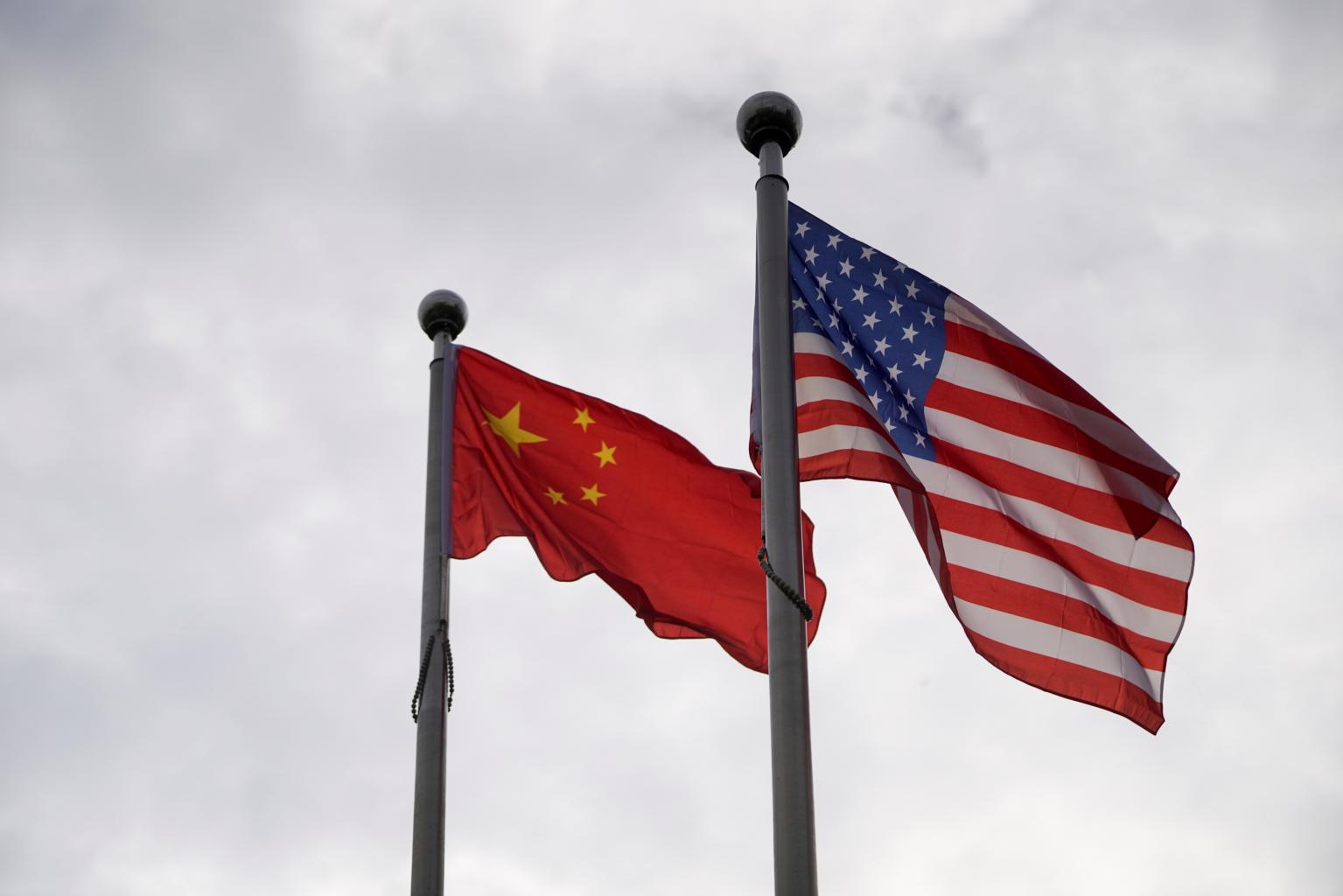US-China relations to settle into 'mutually tolerable friction' zone in 2022: Forum
Sign up now: Get ST's newsletters delivered to your inbox

With China closing in on the US' power in Asia, this will cause the two countries to vie for influence in the region.
PHOTO: REUTERS
SINGAPORE - The world is in for a decade-long geopolitical contest that could prove more intense and dangerous than the Cold War, an eminent political scientist said on the topic of US-China relations at a forum on Thursday (Dec 6).
With China closing in on the US' power in Asia, this will cause the two major powers to compete in the region in a "full spectrum contest" that will touch every facet from the military to trade, technology and people-to-people exchanges, said Professor Khong Yuen Foong, who is the Li Ka Shing Professor in Political Science at the Lee Kuan Yew School of Public Policy.
Exclusive security arrangements such as the Quadrilateral Security Dialogue, Aukus, and Five Eyes alliance comprising Australia, Canada, New Zealand, the United Kingdom and the United States will also make Asean less central to the security architecture of Asia, he added.
Asean can still play a pivotal role in economic terms, given the role of its member countries in multilteral free trade agreements such as the Regional Comprehensive Economic Partnership that took effect this month, and initiatives such as the Asean digital masterplan - one way for the grouping to exercise agency by building digital rules for the region.
Prof Khong was one of three panellists who spoke at a session on US-China relations at the two-day virtual Regional Outlook Forum organised by ISEAS-Yusof Ishak Institute. The other two panellists were US and China experts that provided their respective perspectives.
The panellists agreed broadly that the US-China relationship has stabilised compared with when former US president Donald Trump was in office, although neither side has high expectations of any breakthroughs in cooperation.
Mr Ryan Hass, a senior fellow at US-based think-tank Brookings Institution, said the two countries now see direct engagement or dialogue more as "a pressure release valve" to manage the tension in the relationship, rather than to try to advance a concrete agenda.
Following a virtual meeting between US President Joe Biden and Chinese President Xi Jinping on Nov 15 last year, both countries appeared to be settling into a zone of "mutually tolerable friction", said Mr Hass, who was a White House adviser for China, Taiwan and Mongolia under former president Barack Obama.
Barring an unforeseen event, this is the zone that both sides will stay in for the upcoming year while navigating heightened but manageable levels of tension, he said.
Professor Chen Dongxiao, who is president of Chinese think-tank Shanghai Institutes of International Studies, agreed that 2022 will be another year of uncertainty for both countries, as both need to overcome Covid-19 for economic recovery, seek better mutual trading terms, and more jobs and stability, among other issues.
"The domestic agenda for both sides means that both sides need a more stable bilateral relationship, but... China is still not so certain whether 2022 will be a year for more calming down or an even more explosive period of time," said Prof Chen, who also advises China's Foreign Ministry on economic diplomacy.
He urged both the US and China to strengthen communication at all levels - from leaders to the working level - to foster mutual understanding and prevent conflicts, especially on sensitive issues such as Taiwan, Hong Kong, Xinjiang, and the South China Sea.
While South-east Asia has seen some benefit from the competition between the US and China, such as the "one-upmanship" in providing countries in the region with Covid-19 vaccines, countries prefer a more predictable environment for economic investment and pandemic recovery, said Prof Khong.
Otherwise, the intensification of geopolitical competition in the region will test the solidarity of the region and may "pull different members of Asean apart in a strategic sense".
"So there's this silver lining (but) you know it's something temporary, and I think the Asean countries would prefer to go back to some Asean modalities... where the two superpowers can come in and continue with their constructive habits of dialogue and confidence-building mechanisms," he said.
Prof Chen said competition to provide solutions and public goods such as vaccines is a good thing, even if it is not the best or most efficient way, and that positive-sum competition should be encouraged.
Mr Hass pointed out that it would be wonderful to see China contribute to the Covax vaccine-sharing programme "rather than to do it on a bilateral basis and often for sale". The US is the largest contributor to Covax.
It is very difficult for the US to support what is seen as a Chinese initiative and vice versa, so the two countries should rely on global mechanisms like Covax, he added.
The rest of the world expects the US and China to produce more than just great power competition with each other, and to be part of the solution to global challenges such as climate change and public health, said Mr Hass.
"Ultimately, America's and China's prestige on the world stage will derive from their performance. And whichever power demonstrates the greatest capacity to improve the lives of their citizens and the lives of people around the world will benefit from the pole of power," he said.


